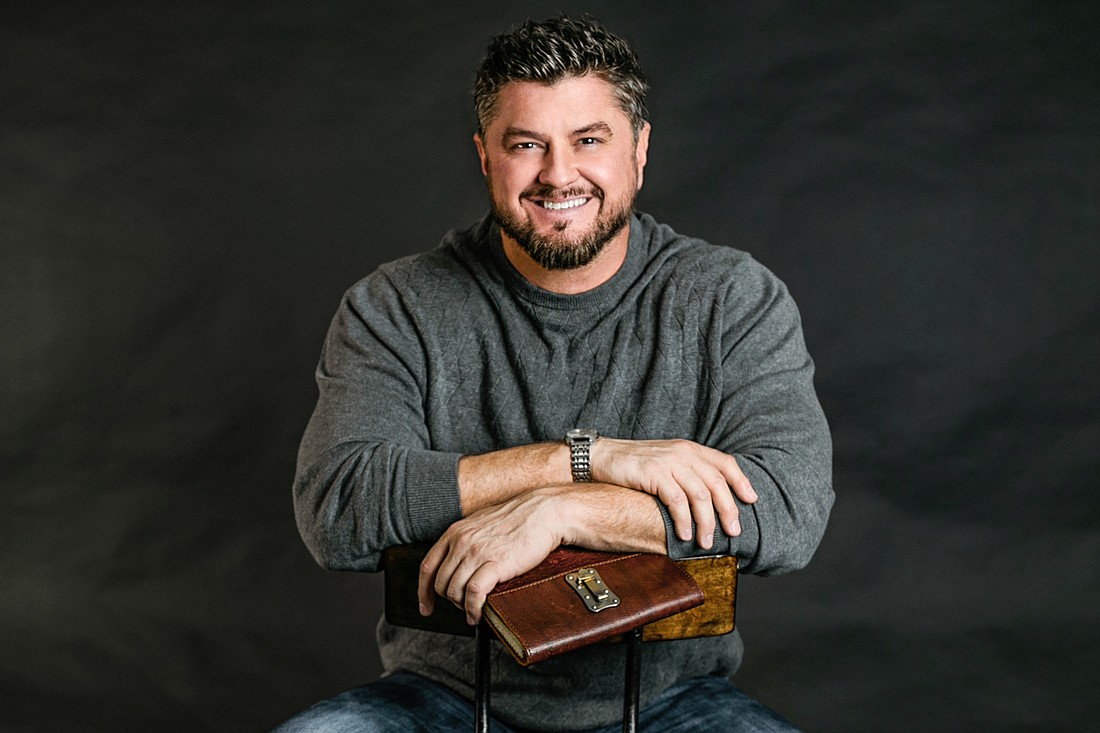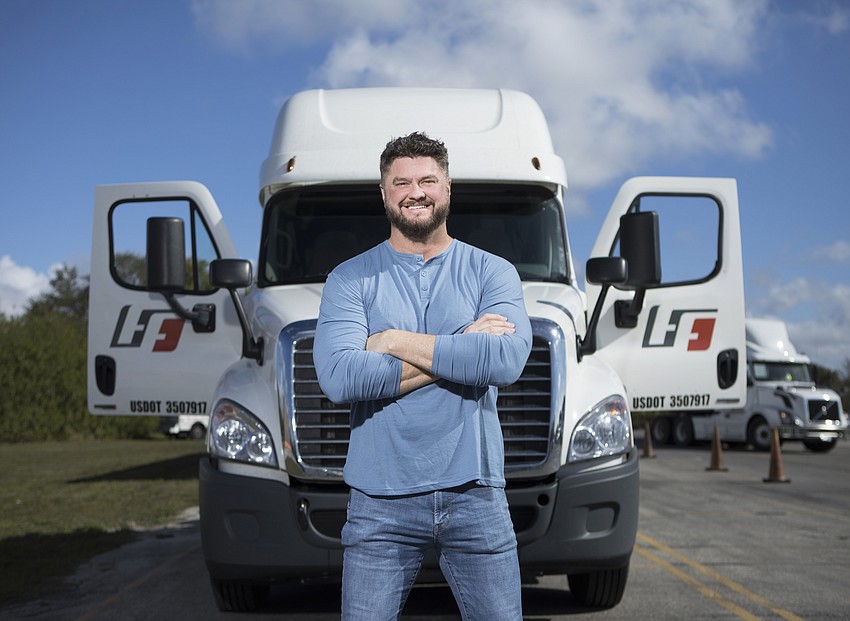- April 2, 2025
-
-
Loading

Loading

Tra Williams is an entrepreneur’s entrepreneur, a creative, resourceful and sometimes impatient businessman who has run everything from a personal training referral business to Dairy Queens to a trucking school.
Some of this could be traced back to his childhood. He grew up in Blackshear — a no-stoplight small town in Southeast Georgia, where his mom was a rural letter carrier for the U.S. Post office. The Williams family also had a roadside business of sorts, selling homemade ceramics and excess vegetables from the farm at tables in the grass. “I thought everybody just hustled,” says Williams, a third whose nickname sounds like tray. “I thought that’s what everybody did.”
About 80 miles north of Jacksonville, Blackshear, says Williams, is the kind of place where just about everyone did one of three things: farming, work on the railroad or work in the local timber factory. “There weren’t any jobs,” he says. “There was nobody with a sign that said ‘now hiring.’
Yet Williams got out. He graduated pre-med from the University of Georgia and took MBA classes at Georgia State. Later, in 2011, the International Franchise Association chose Williams for its inaugural scholarship, and he completed the Franchise Management program at Georgetown University. Williams, 50, is now president and CEO of FleetForce Truck Driving School, a Bradenton-based business on a Whac-a-Mole-like mission to supply the state with a much-needed injection of new, licensed CDL truck drivers. The need is acute: Some 25% of the national demand for truck drivers, says Williams, is in Florida.
Capitalizing on new opportunities — they come fast and furious — and running FleetForce occupy a chuck of Williams’ time. But the high-energy Williams makes it clear, while sipping a latte recently at a Kahawa coffee shop in Lakewood Ranch, that he believes he has a higher calling: to, he says, rescue one million entrepreneurs from traditional employment.
“I was a terrible employee. I always felt unfulfilled (until) I realized I wanted to be an entrepreneur,” he says. “Now I want to put my money where my mouth is, and help people become entrepreneurs.”
This is a multimedia endeavor for Williams, who lives in east Manatee County with his wife Megan and son Wyatt. He recently wrote a book, “Boss Brain: Unlock Your Entrepreneurial Instincts,” with a foreword by psychologist, asset manager and author Daniel Crosby. Williams has been talking up his ideas and beliefs on podcasts and business TV shows, and he also has been delivering a keynote entitled "The Entrepreneurship Gap.” One more angle: he’s been working with economic development agencies and chambers of commerces across the region to pitch his philosophy.
This isn’t a mere take-this-job-shove-and-shove-it soliloquy Williams has cooked up. He cites multiple studies that show people who run their own business lead happier, healthier and more philanthropic lives. And when Williams speaks to EDC and chamber leaders, one of his messages, he says, is of business diversification. That is, while landing the next Amazon or grocery facility is a big win, it also presents a potential issue if that entity fails and the jobs it brought evaporate. A community with a high rate of entrepreneurs, Williams says, can better absorb that loss.
That’s a notable statement, considering FleetForce is training truck drivers to fill some, if not many, of those roles. But Williams says it comes from years of reading and analyzing studies and reports, and decades working in franchising and starting and buying his own businesses. “Despite all the current talk about the gig economy,” he writes in Boss Brain, “the widening gap between entrepreneurship and employment is the largest in history.”

Williams, finally, has a list of statistics at the ready to prove the country is at a real entrepreneurial crossroads. A sampling:
Williams wraps those nuggets around a core thesis of his book, that human brains aren’t made for structured employment. “Mother nature simply did not wire us to execute a mindless routine each day,” he writes. “We were not designed to be cogs in the wheels of society. We most certainly were not meant to have our lives dictated to us by our jobs.”
In the book and conversation, Williams says part of the issue stems from people making excuses about ditching their day-job to start a company. The list includes: Not enough time or skill. Too old. Too young. Too much going on with the family. And on. Williams sums it up this way: “Comfort is the enemy of progress.”
Williams has even taken his cause one-on-one, counseling friends and others in his life about giving up a job to be an entrepreneur. One good friend called him from Seattle a little while ago, saying the grind selling mutual funds for a large wealth management firm was a drag. His buddy was considering starting his own company in the same field. “I said ‘you are not calling me to see if you should do this,’’' Williams recalls. “‘You are calling me because you know you want to do this.’”
The friend took the plunge. Today, says Williams, he has a wealth management firm with $75 million in assets and is making around $400,000 a year — a lot more than his previous gig.
“No one ever does this and says ‘man I wish I hadn’t become an entrepreneur,’” Williams says. “I’ve never worked with anybody who’s regretted it. No one ever says ‘man I should’ve just stayed getting my paycheck.’”
Of course Williams recognizes there are pitfalls and problems along the way, and while entrepreneurs, he says, are happier, that doesn’t mean they are without pressure. That payroll comes every two weeks — no matter what. Williams also talks openly about his mistakes. Like with FleetForce he says he grew too fast at first, after he bought the business in 2020, and hired some people who in retrospect weren’t the best people to move the business forward. “I sacrificed culture at the altar of speed,” he says.
He expands on the challenges of entrepreneurship in his book, too. “Entrepreneurship is often, if not always, humbling,” he writes. “Many variables are unpredictable. But that is precisely why sustained effort is a crucial element. No one is born with the innate ability to manage unpredictable variables. So, failure itself does not necessarily indicate a lack of talent. Everyone is born with the ability to adjust to challenges, revise their plans and try again.”
(This story was updated to reflect the name of Williams' wife and son.)